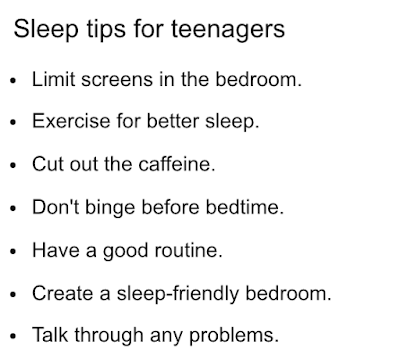We spend about a third of life sleeping. Sleep deserves more attention. High quality sleep improves cognitive performance, quality of life, and emotional stability.
Sleep is essential for learning, memory, attention, and decision-making.
Physiologic loading, travel, anxiety, and competition can all interfere with sleep duration and quality. Young athletes also face academic pressures and time demands encroaching on available sleep time.
"Students with less sleep and higher reported levels of sleepiness generally have lower grades and alertness."
A Stanford study in basketball players who extended sleep showed sprint times reduced by an average 4.5%. Both free-throw and 3-point shot accuracy significantly improved by 9% and 9.2%, respectively. Sleep better, play faster and better.
Younger adults normally need 7 to 9 hours of sleep and teens 8 to 10 hours. Britain's National Health Service has practical recommendations for sleep hygiene:
Alcohol impairs sleep in teens, as well as affecting brain development, memory, reaction time, and coordination...all big negatives for athletes. Marijuana may impair sleep onset and cause excessive daytime sleepiness.
Mindfulness can also help teens sleep better.
Summary:
- Teens need more sleep.
- Competition, travel, and stress all worsen sleep.
- Poor sleep produces both physical and mental deficiencies.
- Basketball players improved speed and shooting with longer sleep.
- Better sleep environments are possible (sleep hygiene).
- Mindfulness is a zero cost technique to foster better sleep.
- Alcohol and marijuana worsen sleep and teen cognition.
Lagniappe:
Via @PickAndPop.Net Steve Nash reads defense, slows the game down, is patient, and executes.

